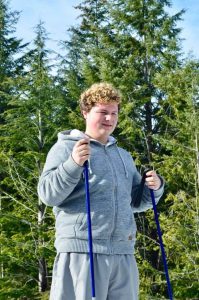An Open Letter to Fellow Pastors Concerning Special Needs Families
Dear Friends,
I wonder if you recall the great “unreached people group” boom of the 80’s and 90’s. I was growing up in a missional community back then, and we were always talking about completing the Great Commission. We would lay giant world maps over the floor, praying for the tribes and nations who had little to no exposure to the good news of Jesus Christ. We wanted to go to them, to show them that God loved them. And we did.
It was a fruitful push, but I fear we were somewhat farsighted. With such a broad, global focus, we often missed the unreached people living in our own neighborhoods. One group is especially dear to my heart: special needs families. It’s not that they’ve never heard the gospel; it’s that they often have little to no access to church life. Their situations often present significant obstacles to joining a faith community. But they need you. They need the love of your communion. And you need them, too.
I could tell you my own story as a pastor and special needs dad, but if you follow this blog, you probably know it already. So instead, I want to tell you about Kyle.
Kyle’s Story

When Kyle came to us, his parents were barely hanging on. In truth, they were in survival mode. Having adopted six kids from some incredibly difficult situations, they were grappling with a variety of significant disabilities and mental health issues. Kyle, their ten year old, was probably most affected. He dealt with autism and considerable learning disabilities, as well as with behavioral issues like anger management. He was a flight risk too; a big kid with violent outbursts and an urge to slip away through the window!
Kyle’s parents needed a break from the world. They needed ninety minutes free on a Sunday morning in order to worship God and remember His love for them. Kyle needed a break from the world, too. He needed a breather from danger, from outside judgment, from an impatient culture, and from peers who made no effort to understand or include him.
Our Sunday morning accommodation was simple enough. (I wrote an article about it back in 2012, but we have learned and adapted much since then). We had a room set aside for kids like Kyle–kids who couldn’t abide the main service, and who were too stressed out to stay in the kids’ service. The “Open Heavens Room,” as we called it, was furnished with simple tools designed to help children dealing with sensory issues. We hired a local expert who knew how to help these children relax and make sense of the world. Lori was skilled, patient, and kind. And she trained other adults to take walks with our Kyles, get to know them, and help them bravely enter the kids’ service when they felt up to it. (My wife Sara, our children’s pastor, led the charge on this effort. She talks about it briefly in the video below:)
For families like Kyle’s, the Open Heavens Room proved to be more than a respite; it became a front door to our congregation. Our family. And isn’t this what church is supposed to be? Isn’t this why some of us still call one another “brother” and “sister?” It sounds almost cheesy–a relic of a bygone era built of crusty rules and religiosity. But words matter, and relational tags can serve to remind us of a deep truth:
Church is not a exclusive club, or a brick building, or a solemn event on Sunday mornings. Rather, the church is people — siblings of different blood, but of the same Father. Church is family.
When we make accommodations for people like Kyle and his parents, then, we are giving them an opportunity to take their shoes off and walk into our living rooms. We are telling them they have a place at our dinner tables. We are telling them, “you belong.” If we overlook the the special needs community, however, most of them will remain outside the family. They will continue on, unreached.
Our church embraced Kyle’s family more than seven years ago. Sunday morning was only one part of it. There were plenty of other parts: meals and moving teams, consistent prayer and counsel, gifts and enduring friendship. The journey hasn’t always been easy for him, or for his parents. But they pressed on, and he pressed on, and we pressed on with them. All of us grew together.
After years of therapies, prayers, and support, Kyle was doing much better. On Sundays, he no longer needed the Open Heavens Room, and was spending church with his peers. That was our goal in the first place: we want our people to be together. But he was still having significant challenges with schoolwork. His mom was homeschooling him, but she was still running up against his learning disabilities. That’s when she asked my wife if Kyle could spend a few hours every week helping out at the church offices. Such an arrangement would give his mom a breather, and it could help Kyle learn some important job skills for down the road. We were happy to give it a shot.
At first, Sara was giving him busy work, like preparing kids crafts and shredding paper. But soon, his confidence started to grow, and everything changed. Our administrative pastor, Janell, started entrusting him with harder projects, like changing ballasts on fluorescent lights. He learned to do research online, watching Youtube videos, asking good questions, and going to work. And he just kept learning…
 Today, Kyle is sixteen years old, and he is a paid member of our church staff. He worked himself into a job. He has grown into a kind, hard-working young man, and is a true asset to our team. The guy just gets stuff done, and we love having him around.
Today, Kyle is sixteen years old, and he is a paid member of our church staff. He worked himself into a job. He has grown into a kind, hard-working young man, and is a true asset to our team. The guy just gets stuff done, and we love having him around.
Not only that, but his parents–those brave souls who took on so much–are not living in survival mode any longer. Their life is still full of challenges, but they are able to stand, steadfast and overflowing with compassion and wisdom for other parents in our congregation. They are an integral part of our family.
My Challenge
When Jesus bid us to “let the little children come,” it wasn’t just for the their own sake. We benefit from their presence as much as they do from ours. Children facing challenges like Kyle, or like my own Jack, possess rare qualities that enrich all of us. They are overcomers, and carriers of hard-fought joy. This is the nature of God’s interdependent kingdom: we need each other.
And yet, there are countless families who are left out of this circle. They might live across the street from a church, yet they remain unreached. Many of them have made an effort before, but it grew too difficult. Too confusing. Maybe their child was too noisy during a service. Maybe someone made a rude comment about a lack of discipline. Maybe someone told them to find another church. I’ve heard all of these stories more times than I can count. These families deserve better. These children certainly deserve better.
Truly, our churches can become safe havens for these weary souls; oases where they can drink deeply from God’s spirit and God’s people; communities where they can breath and thrive.
You don’t have to replicate what our church did. Every situation is different, after all. But if you will open your doors to these families–if you will seek them out, listen to their stories, and find even small ways to accommodate them–you will not only be helping people in need; you will be giving a beautiful gift to your entire congregation.
So, fellow laborer, I urge you: let them come.
For more information on how to start a special needs ministry in your church, check out KeyMinistry.org. This is a wonderful network of creative parents, experts, and ministers who are actively exploring this need in exciting and creative ways.
And if you are in the Eugene area on March 7th, 2019, join us for A Child To Love, as we explore this issue in more detail. Here is the promo video:
My thanks to Kyle and his family for letting me tell their story.

